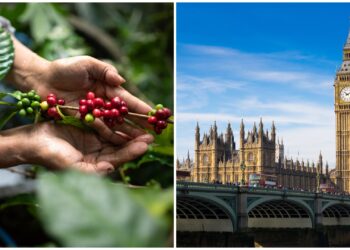It has become economic shorthand for the shift of developed nations towards a more service-based economy, but the term “barista economy”, and the trend it represents, could tell us more about the future of coffee than it was ever intended to. The barista economy phenomenon is particularly prevalent in wealthier nations such as Australia, where high levels of disposable income combined with a relatively low average cost of basic goods has led to a boom in spending on high-end services – of which specialty coffee is a prime example. Senior Investment Analyst at Colonial First State Global Asset Management in Sydney, James White, has been a keen observer of this trend and its effect on the Australian economy. “The average dollar that Australians are spending is now much more likely to be spent on services, whether that’s on travel or on going to a café and getting an extra coffee. That is really important from a macro perspective, because services are much more labour intensive, which is obviously good for employment,” White tells GCR Mag. This growth in the services sector is not only creating more jobs, it is also creating whole new career paths that never before existed. “You’ve got people, particularly in Australia, who feel as though they can make a career out of coffee now, and I think that is a really positive thing,” White says. White argues that what we are seeing with the emergence of the barista economy is the realisation of a prediction made by influential economist John Maynard Keynes some eight decades ago. “Keynes predicted that by 2030, humans would only need to work 15 hours per week,” White says. “Now for most of us that sounds nuts, but I believe that it’s probably about true – we just need to revise what we see as work and what we see as leisure.” A career in coffee, largely driven by passion, is just one example of a career path where those lines are increasingly blurred, White says. “What we are seeing in Australia is the emergence of more jobs or careers that people just fundamentally enjoy doing, and barista is one of those.” And for those who don’t particularly fancy a career in coffee, but still value quality in the cup, this shift will also pay dividends. “The services sector is highly competitive, which is great for the consumer because they are getting lower prices, but also they are getting much better quality,” White says. As we have already seen in the explosion of café culture in Australia, this translates into a higher quality experience for the consumer, more of the time. “The way the café looks is important, but the most important thing for most Australians is how good the barista is, and that is a really important shift in the economy because it represents a shift towards labour being the most important resource,” White says. Interestingly, White says that Australia’s economic history has made it uniquely well positioned to lead the trend towards the barista economy. “Australia is relatively far ahead with this trend, largely because we had less to lose – we had a relatively small manufacturing sector and corporate sector to start with, so we’ve been a service-based economy for quite some time.” For White, who has studied this phenomenon for some years, there is only one problem with the barista economy. “My only objection to the barista economy label is it’s a bit limited – I enjoy coffee a lot, but there are people who don’t, for whatever strange reason, and they may not be so receptive to the concept because of that, but it’s really about a shift towards leisure-based activities,” he says. That should not be a problem among GCR readers. GCR
Ethiopian coffee sector sets export record
Ethiopia’s coffee sector is experiencing one of its strongest periods in recent history, including a record figure generated from exports....





